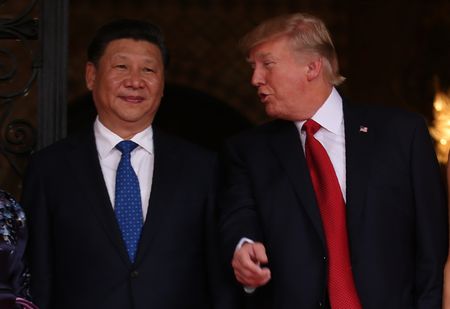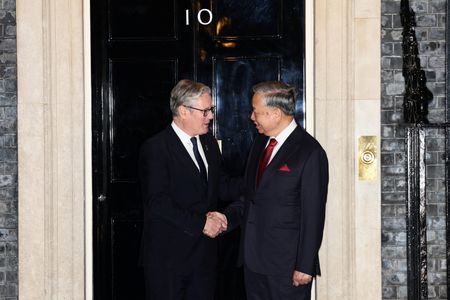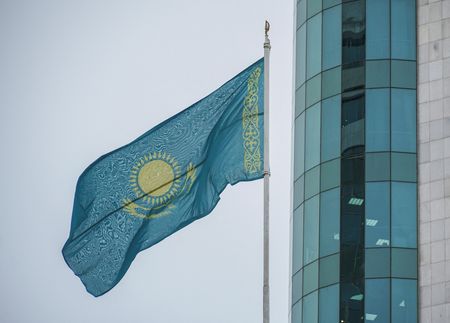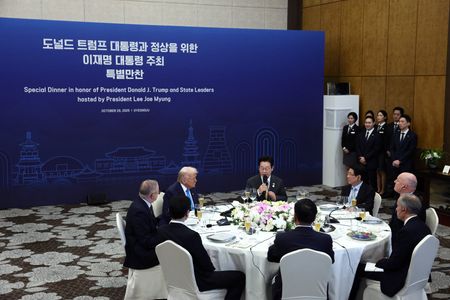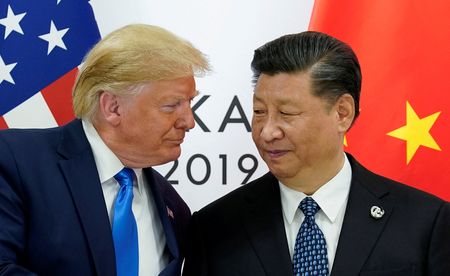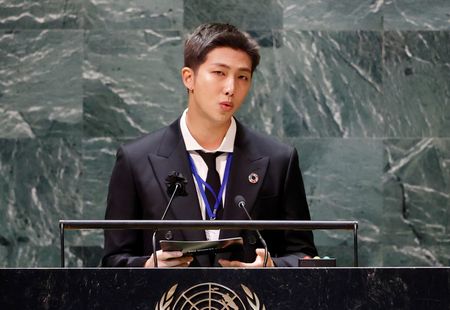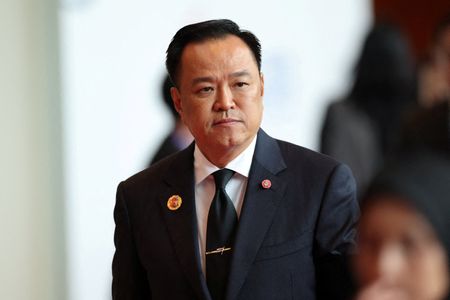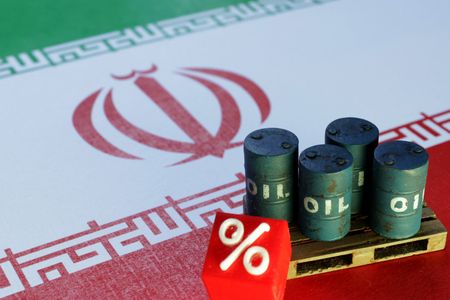By Trevor Hunnicutt, Michael Martina and David Brunnstrom
BUSAN, South Korea (Reuters) -As U.S. President Donald Trump and China’s leader Xi Jinping prepare to kick off talks on Thursday, U.S. negotiators have signaled they seek a return to a fragile trade war truce, but tensions remain high and longer-term economic irritants will likely persist between the geopolitical rivals.
Trump has repeatedly expressed optimism about reaching a deal when he meets Xi in Busan, South Korea, on the sidelines of the Asia-Pacific Economic Cooperation (APEC) summit. It will be their first face-to-face meeting since Trump’s first term.
But with both countries increasingly willing to play hardball over areas of economic and geopolitical competition – which analysts see as a new Cold War – many questions remain about how long any trade detente may last.
The trade war exploded this month after Beijing proposed dramatically expanding curbs on exports of rare-earth minerals vital for high-tech applications, a sector China dominates.
Trump vowed to retaliate with additional 100% tariffs on Chinese exports, and with other steps including potential curbs on exports to China made with U.S. software – moves that could have upended the global economy.
U.S. EXPECTS BEIJING TO DELAY RARE EARTH CONTROLS
After a weekend scramble between top trade negotiators, U.S. Treasury Secretary Scott Bessent said he expected Beijing to delay the rare earth controls for a year and revive purchases of U.S. soybeans critical to American farmers, as part of a “substantial framework” to be agreed by the leaders.
Ahead of the summit, China bought its first cargoes of U.S. soybeans in several months, Reuters reported exclusively on Wednesday.
Ryan Hass, a China specialist at the Brookings Institution, said however that both sides will be reluctant to give up control of goods and technologies on which the other side depends.
“Those chokepoints will remain, loaded guns resting on the table, as both leaders look for ways to reduce their national dependence on each other for critical inputs,” he said.
The White House has signaled it hopes the summit will be the first of several between Trump and Xi in the coming year, including possible leader visits to each country, indicating a protracted negotiation process.
But Trump wants some quick progress, in talks being closely watched by businesses worldwide.
Trump said on Wednesday he expects to reduce U.S. tariffs on Chinese goods in exchange for Beijing’s commitment to curb the flow of precursor chemicals to make fentanyl, a deadly synthetic opioid that is the leading cause of American overdose deaths.
Trump has also said he might sign a final deal with Xi on TikTok, the social media app that faces a U.S. ban unless its Chinese owners divest its U.S. operations.
Beijing is willing to work together for “positive results”, foreign ministry spokesperson Guo Jiakun said on Wednesday.
PRIOR DEALS ON TARIFFS AND RARE EARTHS DUE TO EXPIRE
Previous deals, which brought down retaliatory tariffs sharply to about 55% on the U.S. side and 10% on the Chinese side and restarted the flow of rare earth magnets from China, are due to expire on November 10.
“I expect for the moment they will kick the can down the road,” said Scott Kennedy, a China economics expert at Washington’s Center for Strategic and International Studies, adding that whatever deal emerged, he did not expect it to be substantive or long-lasting.
Talks would not even address decades-long U.S. concerns about access to China’s markets and overproduction by Chinese industries, Kennedy said. “For China, that’s a victory in and of itself.”
Alex Gray, White House National Security Council chief of staff during Trump’s first term and now CEO of consultancy American Global Strategies, said he expected Trump would prefer to have some sort of economic accord with China, but would need concessions to avoid escalation.
Bessent said China had agreed to help curb the flow of fentanyl precursors, but did not say whether the U.S. had made any concessions in return.
Beijing has sought the lifting of 20% tariffs over fentanyl, an easing of export controls on sensitive U.S. technology, and a rollback of new U.S. port fees on Chinese vessels aimed at combating China’s global dominance in shipbuilding, ocean freight and logistics.
Trump’s meeting with Xi comes at the end of a five-day trip to Asia in which he signed pacts with Japan and Southeast Asian nations on rare earths, seeking to blunt China’s stranglehold on minerals used in everything from cars to fighter jets.
TENSIONS OVER TAIWAN
Regional strategic tensions, particularly over Beijing-claimed Taiwan, a U.S. partner and high-tech powerhouse, are an ominous backdrop to the summit.
On Sunday, Chinese state media said Chinese H-6K bombers recently flew near Taiwan to practise “confrontation drills.”
U.S. Secretary of State Marco Rubio said Taiwan should not be concerned about the U.S.-China talks, despite some experts expressing fears that Trump might offer concessions over the island. Washington is required under U.S. law to provide Taiwan with the means to defend itself.
Gray, the former senior White House official, dismissed the notion that Trump would abandon Taiwan in favor of a grand bargain with Beijing as “a Washington think-tank fever dream.”
“We hear this over and over and over again … and it never comes to pass. In fact, he ends up expanding those ties.”
(Reporting by Michael Martina, David Brunnstrom, David Lawder, Trevor Hunnicutt and Daphne Psaledakis; Editing by Edmund Klamann)

